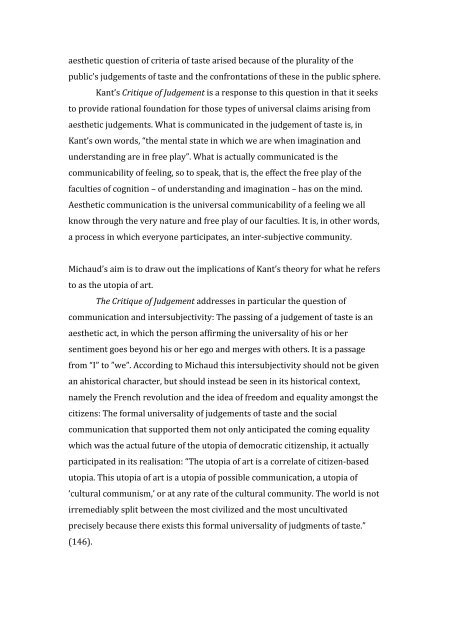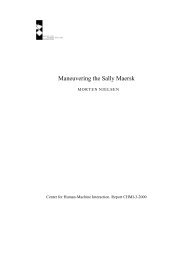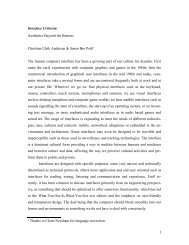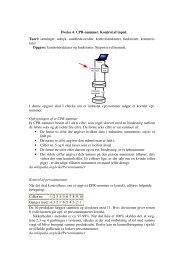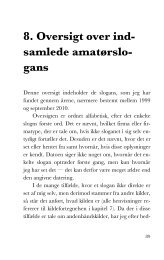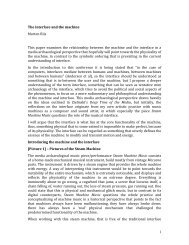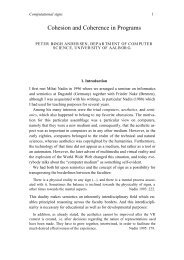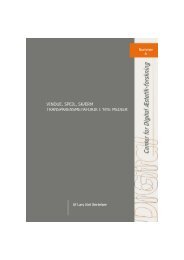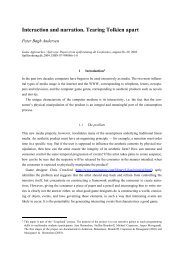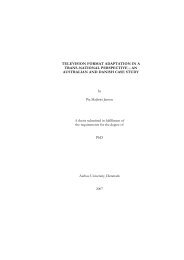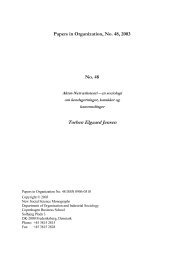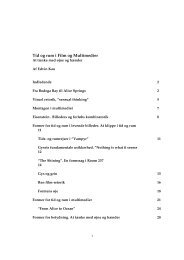SENSUS COMMUNIS AND THE PUBLIC Jacob Lund Drawing upon ...
SENSUS COMMUNIS AND THE PUBLIC Jacob Lund Drawing upon ...
SENSUS COMMUNIS AND THE PUBLIC Jacob Lund Drawing upon ...
Create successful ePaper yourself
Turn your PDF publications into a flip-book with our unique Google optimized e-Paper software.
aesthetic question of criteria of taste arised because of the plurality of the <br />
public’s judgements of taste and the confrontations of these in the public sphere. <br />
Kant’s Critique of Judgement is a response to this question in that it seeks <br />
to provide rational foundation for those types of universal claims arising from <br />
aesthetic judgements. What is communicated in the judgement of taste is, in <br />
Kant’s own words, “the mental state in which we are when imagination and <br />
understanding are in free play”. What is actually communicated is the <br />
communicability of feeling, so to speak, that is, the effect the free play of the <br />
faculties of cognition – of understanding and imagination – has on the mind. <br />
Aesthetic communication is the universal communicability of a feeling we all <br />
know through the very nature and free play of our faculties. It is, in other words, <br />
a process in which everyone participates, an inter-‐subjective community. <br />
Michaud’s aim is to draw out the implications of Kant’s theory for what he refers <br />
to as the utopia of art. <br />
The Critique of Judgement addresses in particular the question of <br />
communication and intersubjectivity: The passing of a judgement of taste is an <br />
aesthetic act, in which the person affirming the universality of his or her <br />
sentiment goes beyond his or her ego and merges with others. It is a passage <br />
from “I” to ”we”. According to Michaud this intersubjectivity should not be given <br />
an ahistorical character, but should instead be seen in its historical context, <br />
namely the French revolution and the idea of freedom and equality amongst the <br />
citizens: The formal universality of judgements of taste and the social <br />
communication that supported them not only anticipated the coming equality <br />
which was the actual future of the utopia of democratic citizenship, it actually <br />
participated in its realisation: “The utopia of art is a correlate of citizen-‐based <br />
utopia. This utopia of art is a utopia of possible communication, a utopia of <br />
‘cultural communism,’ or at any rate of the cultural community. The world is not <br />
irremediably split between the most civilized and the most uncultivated <br />
precisely because there exists this formal universality of judgments of taste.” <br />
(146).


